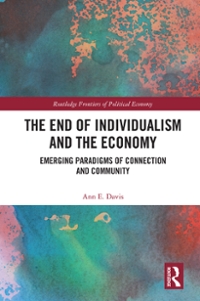Question
1.All of the following assertions about a country's balance of payments are correct EXCEPT:* a. Commercial transactions are the only ones that are documented. b.
1.All of the following assertions about a country's balance of payments are correct EXCEPT:*
a. Commercial transactions are the only ones that are documented.
b. Commodity and service exports and imports are included in documented transactions.
c. It is commonly characterized as a record of transactions between inhabitants of the nation and foreign residents during a certain time period.
d. It is used to assess the competitiveness of a country.
e. It is used to anticipate currency rate fluctuations.
2.Which of the following scenarios do you think is correct?*
a. Real business cycle researchers argued that interventions to reduce production swings are unnecessary.
b. All of the above
c. Both a and b
d. Variations in output, according to real business cycle experts, occur when optimal players adapt to genuine shocks that influence production possibilities.
e. Real business cycle scholars prefer to argue that the economic growth may be characterized as an equilibrium phenomenon.
3.Inflation favors those who benefit from it, particularly those who:*
a. make a fixed-interest loan.
b. are on fixed incomes.
c. set aside money at a predetermined interest rate.
d. borrow at a set rate of interest.
e. take out a variable-interest loan.
4.Which one of the following examples best characterizes an automatic stabilizer?*
a. The President and Congress reach an agreement on new legislation to enhance government expenditure during a recession.
b. The reduction in income taxes that happens during recessions as a result of the general decrease in income.
c. None of the preceding.
d. The President and Congress agree on new legislation that will reduce taxes during a recession.
e. All of the preceding.
5.Which of the following statements regarding currency devaluation is the most accurate?
a. a money exchange board
b. a change in the par value of a currency by the government under a fixed rate regime
c. a drop in a currency's value against all the other currencies in a floating environment
d. in a floating economy, a currency's value rises against other currencies.
e. an official rise in the currency's value by the country's currency policy
6.Demand-pull inflation may be caused by which of the following factors?*
a. Labor unions, who have the power to compel wage levels that are not offset by productivity gains.
b. Vendors who boost their profit margins by raising sales more than their costs rise.
c. The Middle East is at war, which could push up oil prices.
Food crisis in the Midwest, which could result in crop failure
d. Increases in the government's national budget in the absence of revenue increases
7.What kind of approach is Fiscal Policy using if it is attempting to stimulate economic prosperity and stabilization through tax cuts?*
a. Tight Money Policy
b. Fiscal Neutral Policy
c. Contractionary Fiscal Policy
d. Restrictive Fiscal Policy
e. Easy Money Policy
f. Expansionary Fiscal Policy
8.The following are the costs of inflation EXCEPT:*
a. Inflation causes capital to be redistributed by lenders to borrowers.
b. As families want to save money by reducing their currency reserves, the lack of appreciation of money in inflation results in actual costs.
c. Price signals are distorted by higher prices.
d. Higher inflation rates are associated with greater nominal market fluctuations.
9.According to actual business cycle theory, a tax hike would:*
a. have a major impact on labor supply, employment, and production; and
b. have no effect on output or employment.
c. significantly cut labor supply while increasing employment and decreasing output;
d. diminish employment but not production.
10.According to our textbook, the distinguishing attribute of unemployment is:*
a. the proportion of people who really worked defined by the amount of people who are unemployed.
b. the proportion of non-institutionalized persons aged 16 and up in the population split by the percentage of unemployed people.
c. the unemployment rate as a proportion of the labor force.
d. the proportion of people who are unemployed to the overall population.
e. the percentage of workers who are not in organizations divided by the number of people who are unemployed.
TEST -II TRUE OR FALSE
The connection between two nations' interest rates and currency rates is known as purchasing power parity.
a. true
b. false
A contract that offers an investor the right to deliver a specific amount of money in return for a given amount of another currency is known as the forward foreign exchange contract.
a. true
b. false
Provided the money supply, the amount of government borrowing, taxation, and investment demand, each point along the aggregate demand curve reflects a point where the commodities and money markets are in equilibrium.
a. true
b. false
Even though there is inflation, this does not always imply that all goods are more expensive; in certain cases, the price of some commodities falls even if there is inflation.
a. true
b. false
GNP includes all goods and services purchased inside a country's boundaries, regardless of who created them.
a. true
b. false
Step by Step Solution
There are 3 Steps involved in it
Step: 1

Get Instant Access to Expert-Tailored Solutions
See step-by-step solutions with expert insights and AI powered tools for academic success
Step: 2

Step: 3

Ace Your Homework with AI
Get the answers you need in no time with our AI-driven, step-by-step assistance
Get Started


